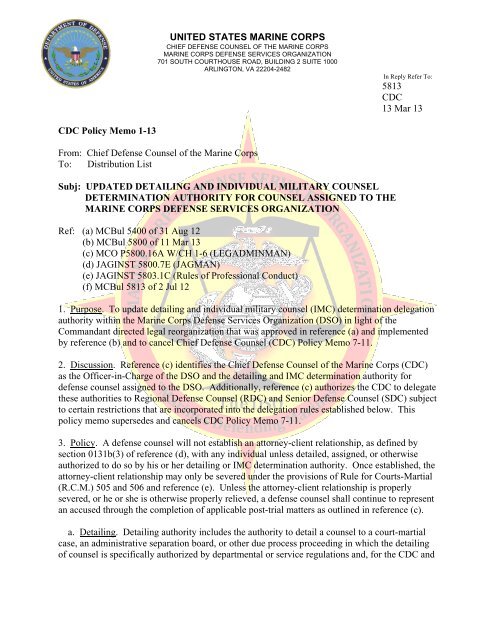Misdemeanor? 3 Steps to Enlist

Understanding the legal implications and processes associated with misdemeanors is crucial, especially when considering the steps to enlist in the military. Misdemeanors, unlike felonies, are less severe criminal offenses, but they can still carry significant consequences and impact an individual's future, including their eligibility for military service.
In this comprehensive guide, we will delve into the world of misdemeanors and their potential impact on enlistment. We will explore the definition and types of misdemeanors, the eligibility criteria for enlistment with a misdemeanor record, and most importantly, the three crucial steps to navigate this process successfully. By the end of this article, you will have a clear understanding of the challenges and opportunities that arise when enlisting with a misdemeanor on your record.
Understanding Misdemeanors and Their Impact

Misdemeanors are a classification of criminal offenses that carry lesser penalties compared to felonies. While they may seem less serious, the impact of a misdemeanor conviction can extend far beyond the initial sentence. For individuals aspiring to serve their country through military enlistment, a misdemeanor record can present unique challenges and considerations.
Types of Misdemeanors
Misdemeanors can vary widely in nature and severity. Common types include:
- Simple Assault: Physical altercations or threats that do not result in severe injuries.
- Public Intoxication: Being under the influence of alcohol or drugs in a public place.
- Petty Theft: Stealing items of low value, typically below a certain monetary threshold.
- Disorderly Conduct: Engaging in disruptive or offensive behavior in public.
- Driving Under the Influence (DUI): Operating a vehicle while impaired by alcohol or drugs.
It's important to note that the specific definitions and penalties for misdemeanors can vary by jurisdiction. Some states may have additional categories or variations of these offenses.
Impact on Enlistment
Having a misdemeanor on your record can affect your eligibility for military service. Each branch of the military has its own criteria for accepting individuals with a criminal history. While some misdemeanors may be overlooked, others can present significant barriers to enlistment. The impact of a misdemeanor often depends on the nature of the offense, the time elapsed since the conviction, and the individual’s overall conduct and character.
For example, a single incident of public intoxication may be less concerning than a pattern of alcohol-related offenses. Similarly, a non-violent misdemeanor may be viewed differently than a conviction involving aggression or threats.
Eligibility Criteria for Enlistment with a Misdemeanor

Determining eligibility for military enlistment with a misdemeanor record involves a thorough evaluation of several factors. The military branches assess an individual’s overall character, conduct, and the circumstances surrounding the misdemeanor conviction. Here are some key criteria that play a role in this decision-making process:
Nature of the Offense
The type of misdemeanor committed is a critical factor. Some offenses are considered more serious than others and may automatically disqualify an individual from enlistment. For example, crimes involving moral turpitude, such as fraud or sexual offenses, are generally not tolerated by the military.
On the other hand, non-violent misdemeanors like simple possession of marijuana or petty theft may be viewed more favorably, especially if there are mitigating circumstances or if the individual has taken steps to address the underlying issues.
Time Elapsed
The time that has passed since the misdemeanor conviction is also a significant consideration. The military generally prefers to see a period of stability and good behavior following a conviction. This demonstrates an individual’s ability to make positive changes and avoid further legal troubles.
Most branches require a certain amount of time to have passed since the completion of any legal obligations related to the misdemeanor. This can include the end of probation, parole, or any other court-ordered requirements. The specific time frames can vary, but they typically range from a few months to several years.
Character and Conduct
The military places a strong emphasis on an individual’s character and conduct, both before and after the misdemeanor conviction. This includes evaluating their overall behavior, attitude, and potential for growth and improvement.
Positive factors that can enhance an individual's eligibility include:
- Stable employment history
- Strong community involvement and volunteer work
- Completion of educational goals
- Demonstrated personal growth and self-improvement
- Positive references from employers, teachers, or community leaders
On the other hand, any additional legal issues, such as traffic violations or further arrests, can negatively impact an individual's chances of enlistment.
3 Steps to Enlist with a Misdemeanor
Navigating the process of enlisting in the military with a misdemeanor record requires careful planning and a strategic approach. Here are the three essential steps to increase your chances of success:
Step 1: Consult with a Recruiter
The first step is to schedule a consultation with a military recruiter. Recruiters are well-versed in the enlistment criteria and can provide valuable insights into your specific situation. They can assess your eligibility based on your misdemeanor record and guide you through the necessary steps.
During this initial consultation, be prepared to discuss the details of your misdemeanor conviction. Provide an honest and detailed account of the circumstances surrounding the offense. Explain any mitigating factors or steps you have taken to address the issue. Recruiters appreciate transparency and are more likely to assist those who are open and proactive.
The recruiter will evaluate your case and determine whether your misdemeanor is a potential barrier to enlistment. If it is, they will discuss the options available to you, which may include seeking a waiver or exploring alternative paths to service.
Step 2: Obtain a Waiver (if necessary)
In some cases, a misdemeanor conviction may require a waiver to proceed with enlistment. A waiver is a formal request to the military to overlook a specific disqualification, such as a criminal record. The process of obtaining a waiver can be complex and time-consuming, but it is a crucial step for those with misdemeanor records.
To initiate the waiver process, you will need to gather and submit various documents, including:
- A detailed explanation of the circumstances surrounding your misdemeanor
- Proof of completion of any court-ordered requirements, such as community service or counseling
- Letters of recommendation from employers, teachers, or community leaders
- Documentation of any positive changes or achievements since the conviction
- A personal statement expressing your motivation to serve and your commitment to the military
The waiver process involves a thorough review by military officials, who will assess your character, conduct, and potential for service. It's essential to demonstrate that you have learned from your past mistakes and are dedicated to a positive future.
Step 3: Demonstrate Positive Changes
Regardless of whether you need a waiver or not, demonstrating positive changes in your life is crucial to enhance your chances of enlistment. The military wants to see that you have taken steps to improve yourself and avoid further legal troubles.
Here are some ways to showcase positive changes:
- Stable Employment: Maintain steady employment and provide proof of your work history. This demonstrates responsibility and a commitment to providing for yourself.
- Educational Achievements: Pursue educational goals and provide transcripts or certificates of completion. Education shows personal growth and a desire for self-improvement.
- Community Involvement: Engage in volunteer work or community service. This not only benefits your community but also showcases your willingness to contribute positively to society.
- Character References: Collect letters of recommendation from individuals who can vouch for your character and conduct. These references can provide valuable insights into your personal growth and potential for service.
By actively demonstrating positive changes and a commitment to personal growth, you increase your chances of enlistment and showcase your potential as a valuable asset to the military.
Case Study: Enlisting with a Misdemeanor
To illustrate the process and potential outcomes, let’s consider a hypothetical case study:
Background
John, a 22-year-old aspiring to join the Army, has a misdemeanor conviction for simple assault. The incident occurred during a heated argument with a friend, resulting in a minor physical altercation. John was arrested and pleaded guilty, receiving a sentence of community service and anger management counseling.
Step 1: Consultation with a Recruiter
John schedules a meeting with an Army recruiter to discuss his situation. He provides an honest account of the incident, expressing remorse and explaining the circumstances. The recruiter informs John that his misdemeanor may be a barrier to enlistment but that there is a possibility of obtaining a waiver.
Step 2: Obtaining a Waiver
John begins the waiver process by gathering the necessary documents. He provides a detailed letter explaining the incident, emphasizing his personal growth and commitment to non-violent conflict resolution. He includes proof of completing anger management counseling and community service, as well as letters of recommendation from his employer and a local community leader.
The waiver process takes several months, during which John maintains steady employment and continues to engage in community service activities. He also pursues further education, completing a certificate program in computer networking.
Step 3: Positive Changes and Waiver Approval
John’s dedication to personal growth and his efforts to demonstrate positive changes pay off. The military reviews his waiver application and is impressed by his commitment to self-improvement. They grant him a waiver, allowing him to proceed with enlistment.
John's case highlights the importance of transparency, personal growth, and perseverance in navigating the enlistment process with a misdemeanor record.
FAQs

Can I enlist in the military with a misdemeanor record?
+Yes, it is possible to enlist with a misdemeanor record, but it depends on the nature of the offense, the time elapsed since the conviction, and your overall character and conduct. Each branch of the military has its own criteria, and some misdemeanors may require a waiver.
What types of misdemeanors are typically disqualifying for enlistment?
+Crimes involving moral turpitude, such as fraud, sexual offenses, or serious violent offenses, are generally disqualifying. Each branch has specific guidelines, so it’s best to consult with a recruiter for a detailed assessment.
How long does the waiver process typically take?
+The waiver process can vary in duration, but it typically takes several months. It involves a thorough review of your application and supporting documents. Maintaining patience and actively demonstrating positive changes during this time is crucial.
Are there any alternatives to enlistment for individuals with misdemeanors?
+Yes, depending on the circumstances, individuals with misdemeanors may be eligible for alternative service programs or civilian support roles within the military. These options can provide valuable contributions to the military while allowing individuals to demonstrate their commitment and potential for future enlistment.
Enlisting in the military with a misdemeanor record is a challenging but achievable goal. By understanding the eligibility criteria, taking proactive steps, and demonstrating positive changes, individuals can increase their chances of serving their country despite their past mistakes. Remember, the military values character, conduct, and the potential for growth, so embrace these values and strive for a bright future.



